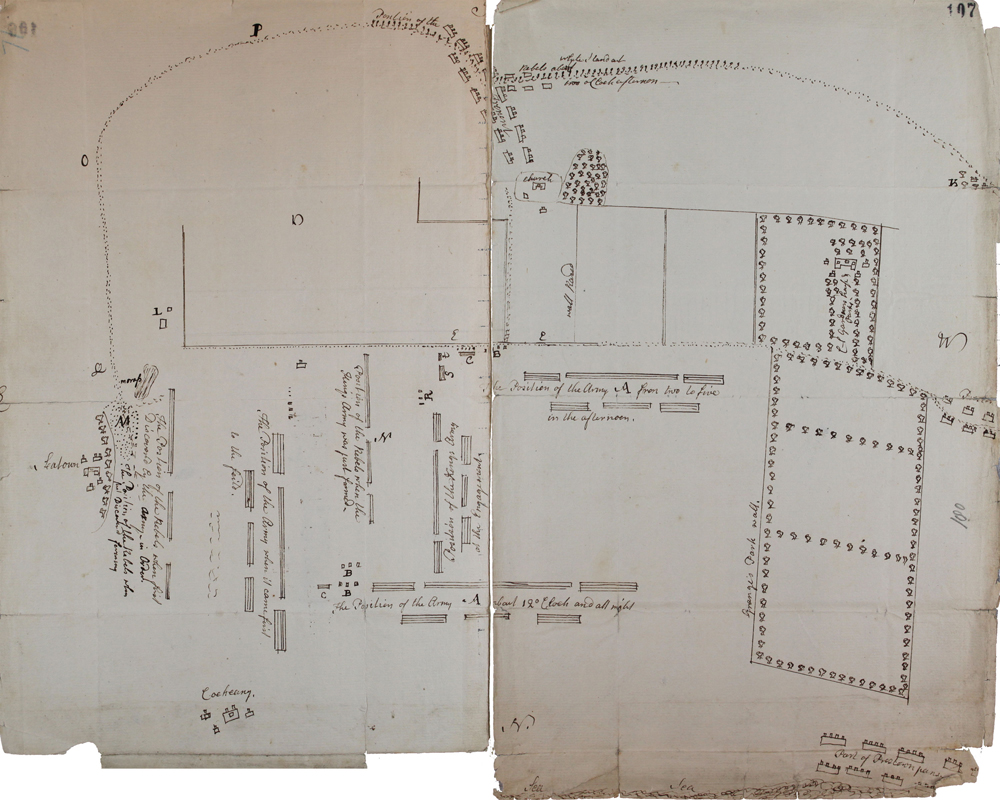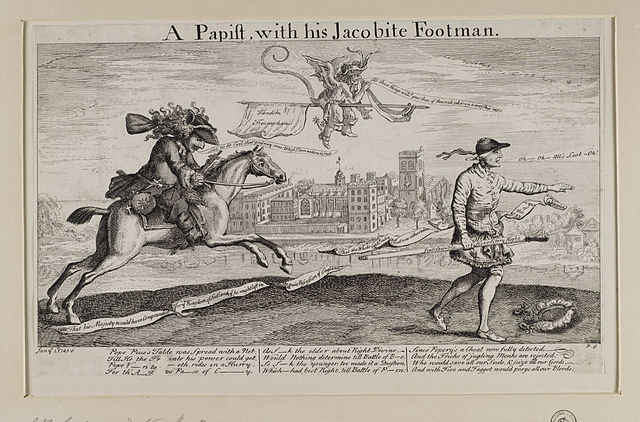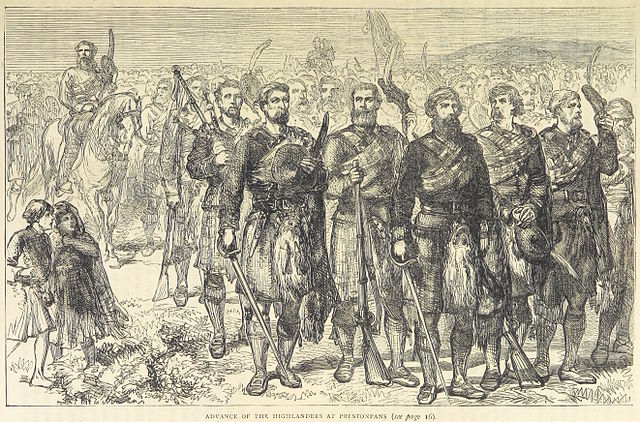The reasoning behind the popularity of the Jacobite cause in Scotland has been widely debated by historians since the end of the movement in the 18th century. While the final battle occurred in 1746, the Jacobite cause turned into, what some argue, a movement that had a lasting impression on the political landscape of Scotland and changed the culture of politics forever. Prior to the emergence of the Jacobite cause, in the 16th century, Scotland experienced a religious reformation through the dissemination of Protestant ideals causing religious friction between Catholics and Protestants; much like the rest of Great Britain. After the Glorious Revolution of 1688, Scotland became a part of England in 1707 through the Act of Union in which Scottish Parliament combined with England’s parliament. Despite joining with England under one united monarchy and government, many Scottish people still felt a national identity separate from that of England.

As historian Jeffrey Stephen wrote, “The Scottish council sought independence and an end to the union, goals they believed could be secured with French help.” In 1745, after years of attempts to restore a Stuart king, the Scottish Jacobites also sought to establish their own nation and looked to the Stuarts to help them do so. Whether or not Bonnie Prince Charlie felt the need to assist with this goal is debatable. Jeffrey Stephen stated that there was a “fundamental division over the competing priorities of the rising between the British and unionist ambitions of the prince and the Scottish.” It could be argued that Prince Charles felt little pressure to help Scotland establish itself as an independent nation once again and more inclination to receive the financial support he required from Scotland. Charles also sought to invade England in 1745 and needed Scottish troops to support this advance.

Jacobitism in Scotland held an appeal to Scottish supporters that lent itself to an anti-unionist perspective. Jacobites were looking to depose the current king in England and establish a king who, they believed, would assist them with their long-held goals of independence. Although the Jacobites experienced financial issues in the mid 18th century, they gained support from Louis XV who also asserted that Pope Benedict XIV would help as well. In 1745, the Jacobites experienced wins over the English that buoyed their cause and increased Scottish support. Many of the ardent Jacobite supporters in Scotland were from Highland clans. As historian Jeffrey Stephen stated, “Controlling Scotland was regarded as the key to encouraging potential support, particularly in the highlands.” Highlanders saw many reasons as to their loyalty to the Jacobite cause.

Scottish highland social hierarchy was dominated by clans whereas the Scottish lowland structure was more similar to the rest of Britain, organized by landowners and tenant farmers. These social systems, specifically in the highlands, social historians Sankey and Szechi argue, lent themselves to becoming ardent Jacobite supporters due to the societal structures and the religious affiliations of Scottish highlanders (most were Catholic). Scottish highlanders who maintained their pre-union social stratification and hierarchies wanted to keep them as such; clans were familial units, closely knit together through centuries of intermarriage and unions. Historian Allan I. MacInnes argued regarded historical scholarship of Jacobites in Scotland, “The front-line contribution of the Highland clans is down played and the nationwide commitment to the exiled Stuarts overstated geographically, socially, and culturally.” Highland clans were large supporters of the Jacobite cause as many highlanders were Catholic or wholly supported anti-unionism which came to be synonymous with Jacobitism in Scotland.
Social historians have also recently dissected the causes of increased participation in Jacobitism within Scotland. Sankey and Szechi wrote, “For, while money and influence undoubtedly played a role in many Jacobites’ engagement (and disengagement) with the Stuart cause, and particularly their willingness to turn out in arms to fight for it, they did so in a particular social context.” They argued that the social hierarchy established in pre-Jacobite Scotland played into who and who didn’t involve themselves in the Jacobite cause. Wealthy elites had much more influence and participation than those of the lower, working classes. The influence of Jacobitism in Scotland was more than just an economic or political cause; it was also shaped by the societal norms that previously existed in Scotland and became an intrinsic part of Scottish identity further than religious or political reasoning.